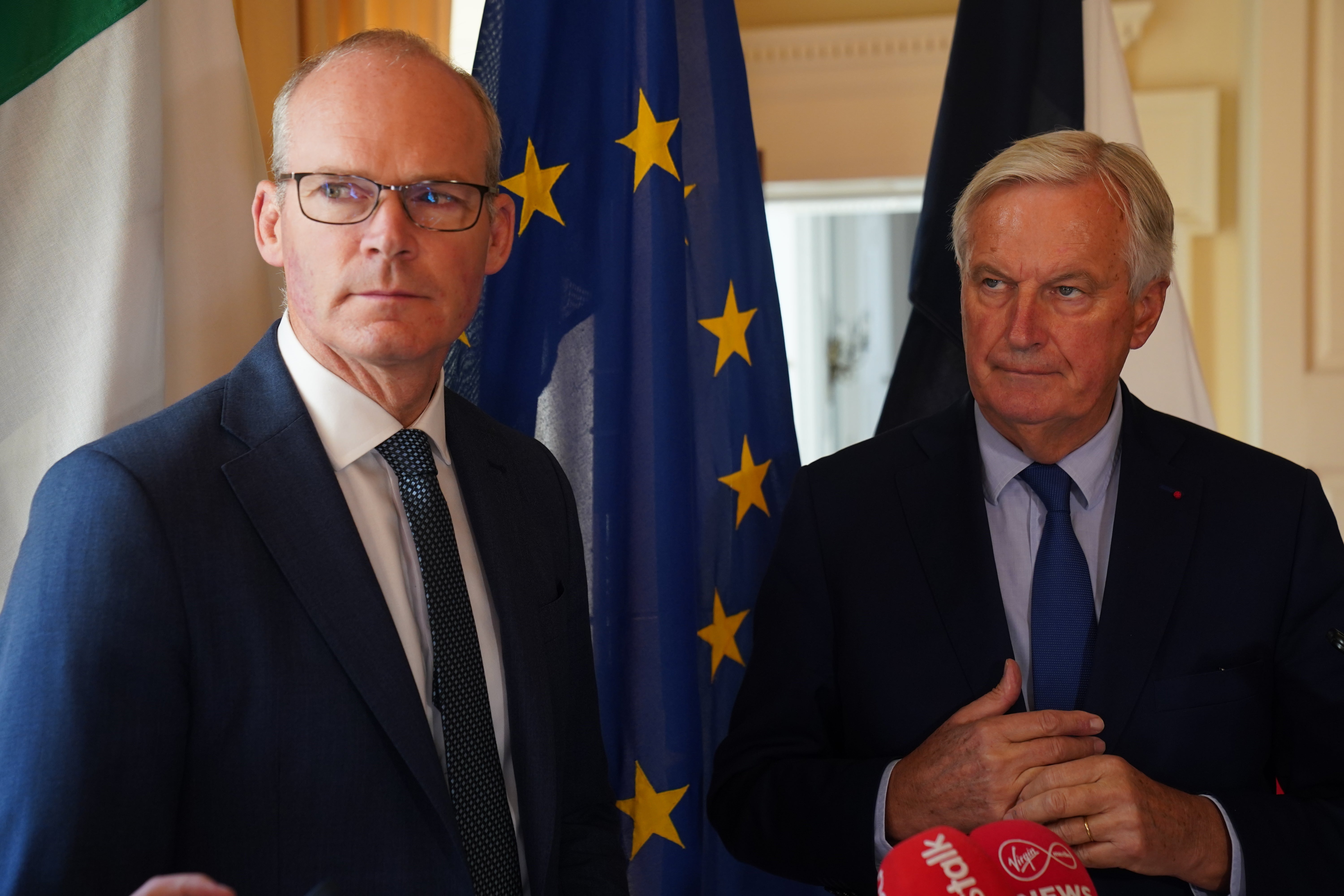Michel Barnier says EU ‘must not back down’ over Northern Ireland protocol
The former chief Brexit negotiator for the bloc said that Brexit had not yielded any benefits for the UK, in an address in Iveagh House.

The EU “must not and will not back down” in the EU-UK dispute over the Northern Ireland Protocol, Michel Barnier has said.
The former chief Brexit negotiator for the bloc said that Brexit had not yielded any benefits for the UK and described it as “a unilateral decision by one party with negative impacts for itself”.
During an address in Iveagh House in Dublin city, Mr Barnier said that Brexit also remained “a challenge” for Ireland, and “a blow” to the European Union project.
“Brexit is in great part the result of populism. We must be aware that this poison might still arm Europe again. But populism must not be mistaken with public opinion or public sentiment.”
The protocol of Ireland and Northern Ireland must and has to be respected by the British government. This is international law
Mr Barnier argued that being a part of the European Union never stopped ‘a global Britain’.
“Do you remember so many speeches of the Brexiteers – Farage, Johnson and some others – speaking everyday about ‘global Britain’? Frankly speaking, I never understand what prevent UK to be a global Britain inside the EU (sic). Nobody prevented Germany from being a global Germany.”
He said that he had worked with “objectivity, without any kind of ideology” to find operational solutions to Brexit, despite “dogmatism from the consecutive Conservative British governments”.
He said: “The European Union must not and will not back down, and the protocol of Ireland and Northern Ireland must and has to be respected by the British government. This is international law.”
Ireland’s Foreign Affairs Minister Simon Coveney said that work would be done to try to re-establish the Northern Ireland Executive before the October 28 deadline for an election to be called.
“I believe that that we can move the protocol issues along significantly over the next month on some of the core issues that matter, and I believe that that can, and should be enough to justify the setting up of an Executive again,” he said.
He also said he believed that progress could be made on the requests for changes to the operation of the Northern Ireland Protocol.
The idea that we can just do away with all the checks because people don’t want them, and remain credible in the context of the integrity of the EU single market, that is an unreasonable and unrealistic ask by the British government
“The only way we can remove checks on certain products is if we know those products are staying in Northern Ireland, and are not at risk to the rest of the single market, and I think we can do a lot in that space actually.
“So, that’s the space we’re in now in terms of that differentiation,” the minister said.
He added: “The idea that we can just do away with all the checks because people don’t want them, and remain credible in the context of the integrity of the EU single market, that is an unreasonable and unrealistic ask by the British government.
“If that is accepted, then I think the EU is willing to go a very long way – I think – to actually recognise the different risk category that goods that are staying in Northern Ireland should be in, but the only way that could work is if there is real-time and very complete data-sharing on goods that are transiting.
“So, if you’re talking about goods that are coming into Sainsbury’s, for example, in Northern Ireland, or Asda, those retail companies don’t even have outlets south of the border.”
Mr Coveney added that he was more optimistic that a solution could be found amid increasing international challenges.
“I think the more challenges that the UK Government has domestically, and the more challenges that the UK government recognises in terms of international challenges that we need to face together, the less we all need to be expending energy on on differences and tensions around how the protocol is designed and implemented.
“I think there are very strong reasons why the British government should now look to try to close down this debate that has gone on for too long in relation to the protocol, by having an honest conversation around what a compromise looks like,” he added.
Bookmark popover
Removed from bookmarks